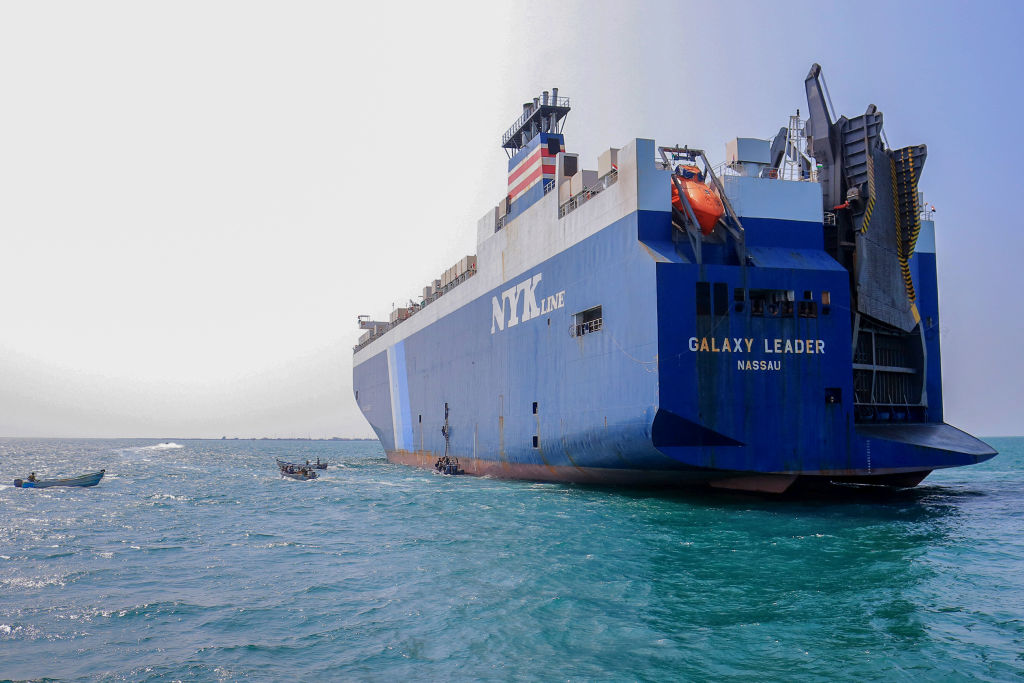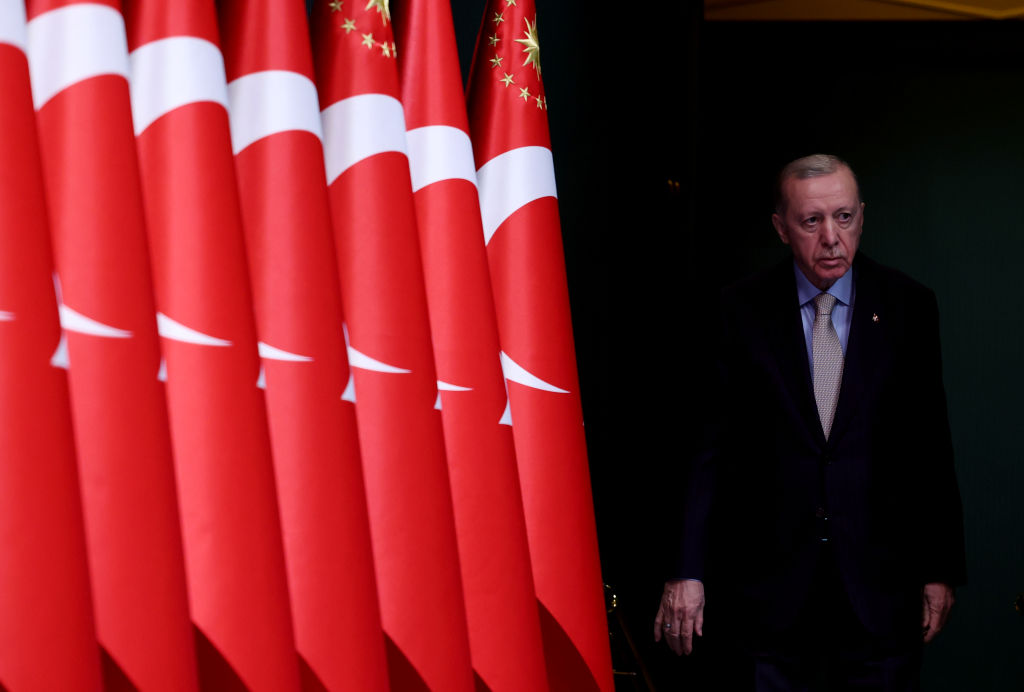America and the UK are getting ever more drawn in to the conflict in the Red Sea, as Iran-backed Houthis fire missiles at commercial ships. The USS Carney has downed fourteen attack drones launched from Houthi-controlled territory and the Royal Navy destroyer HMS Diamond is also there shooting down missiles.
The Houthis are firing from Yemen, and the Iranian regime is reportedly sending them real-time intelligence and weaponry. The Houthis claim that they are only targeting ships headed to Israel, but evidence suggests otherwise. On Saturday a ship traveling from Saudi Arabia to India was struck. Christmas Eve was one of the busiest days yet: US Central Command said that it had “shot down four unmanned aerial drones originating from Houthi-controlled areas in Yemen.”
This affects all of Europe — any choking of shipping routes could mean shortages across the continent. Many ships are rerouting 3,000 miles around the Cape of Good Hope, rather than going through the Bab-al-Mandeb strait. Energy prices could soar especially if the Houthis decide to attack the Strait of Hormuz, through which most oil from the Arabian peninsula travels.
So much for western unity
So is it time for a united response? It seemed so on Thursday when the Pentagon announced twenty countries were joining its Operation Prosperity Guardian. Defense secretary Lloyd Austin said this was a matter of “freedom of navigation for all countries” and confirmed that Spain had joined Britain and France in this alliance.
But now, Spain has pulled out, saying it would rather participate in NATO-led missions or a European Union-coordinated operation than one led by the US. One of the country’s deputy prime ministers accused the White House of being enormously “hypocritical” in its Middle East diplomacy. Why is America more concerned about protecting commerce than it is about calling for a ceasefire in Gaza, Yolanda Díaz asked.
So much for western unity. What went wrong? Díaz is the leader of the socialist Sumar Party, and is one of Pedro Sánchez’s new coalition partners. Sánchez made the call earlier this year to align with parties on his left: he described the Vox Party as “far-right fascists” and opted not to go into coalition with the conservative Partido Popular, which would have delivered a coalition more representative of the electorate’s wishes.
The new coalition in Spain will only muddle the EU’s unity, as this week has shown. If Hungary has been winding up Brussels from the right, expect Spain to now do so from the left. Sanchez’s government could seek to pressure Brussels into being more critical of Israel, and attempt to move the bloc towards calling for a ceasefire at the UN. Spain’s latest leftward drift is yet another example of the difficulties, perhaps even impracticalities, of creating a common foreign and defense policy out of twenty-seven wildly diverse member states.
This article was originally published on The Spectator’s UK website.


























Leave a Reply